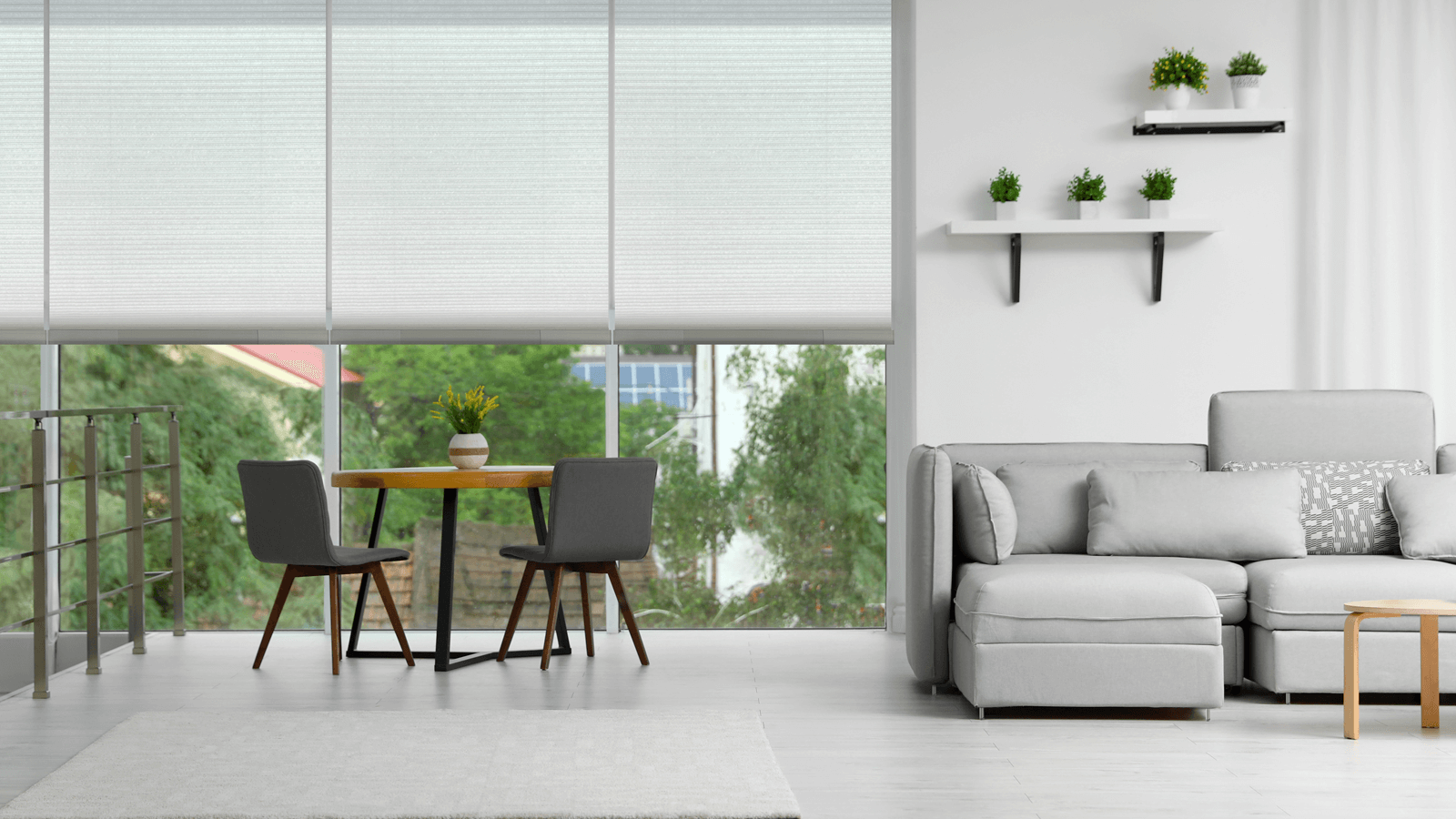Windows play a vital role as an element of living spaces.
- Windows are vital to health - they provide access to daylight which regulates our circadian rhythm. Imagine living in spaces devoid of windows and isolated from the outdoors. Aside from claustrophobia, we would quickly lose any sense of the outdoors and not be able to leverage favorable weather conditions, fresh air or sunlight.
- Window coverings fulfill a basic need for privacy. But the right type of window coverings have a lot more to offer.
On the flip side, windows contribute to heat gain and loss in buildings, impacting energy consumption and greenhouse gas emissions.
Window coverings are essential for regulating a home's temperature and energy consumption. Windows without coverings, especially single-pane windows, can be a source of energy “leakage”. More uncovered windows increase the dependence of the occupants on heating and cooling using HVAC systems. Globally, single-pane windows make up about 40-50% of existing windows, especially in older buildings and in regions with milder climates. Window coverings can block sunlight from entering a home during the summer, keeping it cooler and reducing the need for air conditioning. In the winter, they can help trap heat inside, lowering heating costs.
Automated window coverings offer an even greater opportunity for energy savings. Note first that consumers tend to NOT make the best use of window coverings - they tend to leave them in one state or position in most cases. The primary reason is the inconvenience and impracticality of raising / lowering / drawing window coverings all around a home several times a day. Not surprisingly, on average, a window shade is raised or lowered 1.7 times per week. In fact, 56% to 71% of households do not change the position of any window coverings on a daily basis! Motorized, automated shades are far more likely to be activated and operated on a frequent basis. They can be programmed to open and close at specific times of the day, ensuring optimal energy efficiency. For example, they can be set to close during the hottest part of the day in the summer and open during the sunniest part of the day in the winter.
Automated shades can work with smart home systems to further enhance efficiency. Integration with a smart thermostat allows for seamless adjustments in response to temperature fluctuations and the sun's position.
Reducing energy consumption in buildings is crucial for fighting climate change, as buildings are a major source of greenhouse gas emissions. Recognizing this, several innovators and incumbents in the window shading business are focused on solutions for commercial buildings and new construction. On the other hand, Mado is razor-focused on creating easy install, affordable solutions, easy-to-retrofit as window coverings on traditional household windows. Our goal is to make a significant impact mitigating residential energy consumption (15% of US energy consumption) which is greater than commercial (13%). A Rocky Mountain Institute study concluded that installation and use of dynamic window shades savings can reach upwards of 34% for cooling and 11% for heating on existing homes. If every household adopted Mado Dynamic shades, global CO₂ emissions could be reduced by over 5%.





Share: